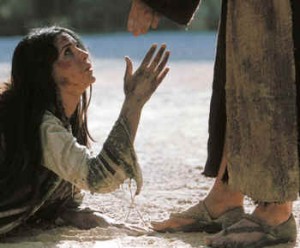Rob Bell…And Hell!
 Last night a group of friends and acquaintances gathered together in Central Hong Kong. It was a Friday night, the work week was over, and so they came together to drink a little wine, eat a little food…
Last night a group of friends and acquaintances gathered together in Central Hong Kong. It was a Friday night, the work week was over, and so they came together to drink a little wine, eat a little food…
… and talk a little hell.
I know this because I was there…
Ok, I was more than just there… I hosted the thing.
It all started a few months ago when I read, and then blogged on, Rob Bell’s book, Love Wins: A Book About Heaven, Hell, and the Fate of Every Person who ever Lived. In the book Bell skirts around the issue of Universalism (a belief that Christ’s sacrifice covers everyone despite their choosing to receive it) and many Christians came away from the book upset that Bell had tried to make hell go away.
Shortly after that I got to speaking to a couple different friends who had read the book and wanted to get together to talk about it. Last night about a dozen people gathered to talk about it.
We set the tone by starting the evening watching a debate on a Christian talk show in the U.K. with Bell defending his views against author and blogger, Adrian Warrnock.
Watching the debate I found Warrnock’s appeal was to literal interpretations on hell and judgement which are most certainly to be found in the Bible. Frequently though he said something like, “we may not like it but we don’t get to pick and choose only the comfortable portions of Scripture.”
Fair enough…
Bell’s defense relied on other interpretations of “hell” passages of scripture, context of a first century audience, as well as a direct appeal to the nature of God. At one point Bell asks Warrnock if a kid dies at 17 years old and he had “rejected” Christ, would God still be inflicting conscious punishment and suffering on him 17 million years later? Does the penalty measure up with the crime? Warrnock is then put in the uncomfortable position of defending the indefensible, so he ends up having to invoke scripture in order to do so.

Following the debate our discussion on the topic was quite lively. I think one of the reasons this topic invokes so much passion is that it brings the nature of God front and center. Some of us last night:
* were a little frustrated that Bell never seemed to answer a question directly
* were trying to process the whole thing because it was so new
* were happy of the fresh understanding Bell gave on a controversial topic
* were trying to reconcile teachings they grew up with
* were not Christian and gave a perspective from outside the faith
* really enjoyed the sweet chilli sauce on cheese with crackers (that was me)
There are so many perspectives we explored last night I can’t begin to unpack them all in a single blog post but I will give a thought I shared in relationship to God’s judgement and scripture.
The Woman in Adultery
I commented during the discussion about what Jesus’ did when confronted with scripture and sin. In John 8, a group of religious leaders bring a woman caught in adultery and interrupt Jesus right in the middle of his teaching. They wanted to test him by asking what his verdict about her would be and whether it would conflict with what the scriptures (Bible) said should be done.
The Bible was very clear; she should be killed. Her life should be ended and every person in that crowd would have been quite familiar with that judgement…including the woman on whom the judgement would ultimately fall.
And why were the religious leaders testing Jesus on this? Well, Jesus had been developing a bit of a reputation. Word was getting around of his bringing too much love, mercy, and forgiveness to people…and not just to pious folk, but to sinners. (I find that nothing makes religious people angrier than too much love and mercy)
Putting it another way, Jesus was getting to be known in the region as being one of those crazy “grace” preachers!
So they round up a “sinner” who the Bible says should receive death and they say,
In the Law, Moses commanded us to stone such women. Now what do you say?” They were using this question as a trap, in order to have a basis for accusing him.
The Bible says this Jesus…what do you say?
Jesus, after stooping down and writing some undefined words on the ground, counters with, ““Let any one of you who is without sin be the first to throw a stone at her.” Dejected, one by one the group leaves until Jesus is left alone with the woman.
Jesus straightened up and asked her, “Woman, where are they? Has no one condemned you?”
“No one, sir,” she said.
“Then neither do I condemn you,”Jesus declared. “Go now and leave your life of sin.”
The Bible said one thing…Jesus said another!
The Bible said she should be killed, Jesus says she should be forgiven.
The Bible treated her as a convict, Jesus treated her as a daughter.
Jesus refuses to condemn her, and as any loving father would do, encourages her to leave a life that is already bringing misery and death to her.
So Steve, are you against the Bible?
No, but I believe that Jesus is the Word of God (John 1) Jesus came to reveal who God is…When we’ve seen Jesus, we’ve seen the father. (John 14:9)
So in regards to eternal hell for people and the question it poses I risk being a little cheesy when I suggest I am not entirely sure but…
What would Jesus do?
22 comments
Comments are closed.
Related
-
Americana / Christianity / Democrats / G.O.P. / Grace of God / Hong Kong / Politics / Social Commentary
Conviction & Compassion: or What to do with my Democrat, Muslim, and Gay friends
By Steve -
Best Movies Ever / Grace of God / Movie Review / Steve's Life
Les Miserables: A Story and A Review
By Steve -
Books / Grace of God / In Memorium
Brennan Manning: The Passing of the “Grandfather” of Grace
By Steve -
Christianity / God's Kingdom / Grace of God
What Really is a “Good” Christian? Part 1
By Steve -
Christianity / Grace of God
Taking a Second Cookie: The Law and The Body of Christ
By Steve -
Christianity / Grace of God
How well did I understand grace before I understood grace?
By Steve -
Christianity / God's Kingdom / Grace of God
Overcoming Fear: Or How Not to “Say” and “Do” Silly Things
By Steve -
Grace of God / Guy Stuff / Social Commentary
Video Games, Porn, and The Demise of Guys
By Steve -
Books / Christianity / Grace of God
Book Review: The Gospel in Ten Words
By Steve -
God's Kingdom / Grace of God
What Really is a “Good” Christian? Part 2
By Steve


It is curious that so many Christians want a hard and fast literal interpretation of scripture, while such a position is something Jesus rather frequently eschewed. (Of course, the reality is they want literal interpretations of scriptures that reflect their heart… there are plenty of scriptures running in contradiction to their pet verses… but they feel no conviction to maintain a hard line on those.)
Agree completely with Andrew. Clinging to hard and fast interpretations which include eternal hell and condemnation is all based on fear. Jesus exemplifies that fear is useless. What is needed is trust.
I have looked into this quite extensively myself over the past few months. Since I can hardly ever give a good short answer, I will simply say that I have found some very fresh, deep, and still biblically sound thoughts on the entire topic from a man called Robert Farrar Capon. Mostly from his study on the parables of judgment (he has a massive book including a look at the the parables of grace and the kingdom as well). Long, but man, oh so good! My short answer, not even hell is outside of the reconciliation of what Jesus did on the cross. I am utterly convinced too, that in most of the church’s lust for knowledge, or rather perception that we can indeed fully understand what eternity and ‘life after death’ is going to be like, are pretty damn foolish. Anyways, read that book, it is brilliant!
Andrew & Connie: Yes, Bell did a good job suggesting that even the parable of the rich man and Lazarus was a little surreal and maybe not something to build a literal understanding of the afterlife on.
Derik: Thanks for the suggestion. I will check that out. I was hesitant to post on this as 800-900 words would not adequately convey and good understanding of the discussion. I totally agree that our understanding of life after death…or even what N.T. Wright would suggest as “life after life after death” is way off… 🙂
Hey Steve, in my bi-annual login to facebook I noticed your post and boy what a topic you guys pick for Friday night banter! What I always appreciate is the gracious way you present a topic or discussion. We will all do well to learn that virtue! What I find interesting is that Jesus is the only one to ever talk about hell. In fact he talks about it more than heaven. It’s as if he could be the only one trusted with such a thing.
As far as John 8 goes I would have to disagree. Jesus is 100% bible but it is very subtle. Firstly when the Pharisees brought the women it says she was caught in the very act. So where’s the man in the situation? What they really wanted to do was to trap Jesus. If Jesus said “yes” she should be stoned then the Romans would have got him because it was unlawful for jews to put anyone to death but if he said “no” then he’d be breaking the law of Moses. Either way they thought they had a perfect plan but Jesus was always one step ahead of them. He bends down and writes in the sand with his finger and to any Jew that is symbol of the finger of God writing the law. It’s like Jesus is saying to them I know that law because I wrote it. So he says go ahead throw the stone but according to the law you can’t be guilty of the same sin and there must be at least two witnesses. Now it is known that adultery was rife among the Pharisees who condemned it in public and practiced it in private adding to their hypocrisy. So according to the law (bible) they couldn’t condemn her if they were guilty of adultery too. When they had all gone away, Jesus knowing the law says neither do I condemn you because according to the law I didn’t witness the sin (and you need at least two witnesses) and therefore I can’t stand in judgement. So when in trouble get Jesus as your lawyer. The point I would say was Jesus was 100% bible while the Pharisees weren’t.
I would say I agree with Steve and Graham on the John 8 sidebar discussion 🙂
For me though, I would not say it’s so much Jesus vs bible, I would say more, Jesus vs old covenant (they only had the torah remember). Yes, Jesus was cleverly side stepping the religious pharisees, but most of the fencing done with the religious types of the day, was also part acted parable I think. Since Jesus abolished and cancelled the law, it was more like he was saying throughout the gospels, “Hey dummies, don’t you get it!? I am the one hidden in all the old school law stuff anyways, you are missing me completely” I would say that the pharisees were 1000% (yes extra “0”) law, they just believed it qualifies them for righteousness. Jesus said “no way”, only I do that for you, completely independent of yourselves by the way. Jesus constantly, and quite happily contradicted the law, it was merely a shadow, and a weak and powerless one at that.
When it comes to scripture, I approach it more with always remembering Jesus’ warning (I paraphrase) “you eagerly memorise your scriptures and passionately study those words on the pages, but have fully been blinded in your religious activity and puffed up head knowledge, and missed me in the process”
But it is a huge topic, and debates are not for me anymore.
Ultimately, we are not sure what Jesus wrote. Jesus came to fulfill the law. I think He can forgive her as he is taking the punishment on her behalf. Thus he is not vs OT but fulfilling it. Now we can forgive her or people like her too because Jesus have fulfilled/ satisfied the OT
Steve — I only recently told my wife I read “Love Wins!” (I confessed it to you here months ago!)
i’m sure she’s praying for me even as I write this . . .
What a great discussion! Thanks for staying on top of these topics and bringing them to our attention. We don’t have to agree with everyone someone says but we can take away good information and food for thought.
Thanks for your comments all. Its important to work through this in love and humility which I appreciate everyone doing. We may differ in some thoughts… but this side of eternity, we can live with that!
Graham: , I certainly see things a little differently…but as Derik says, I don’t like to debate as much as I like to discuss. I do appreciate your perspective
Bob: It’s good that you finally “came out of the closet” and declared you have read “Love Wins”
Tung: Yes, God can have mercy on whom he wishes to have mercy!
It seems that the controversy in the discussion on the existence of hell centers on the conflict we feel in considering that God, our God, who is so amazingly loving and gracious and wonderful, could punish people in hell forever. It offends our sense of fairness and justice. I’m right there with you. And not only on the topic of hell. Look at what happened at Jericoh, where infants and toddlers were killed. Doesn’t that offend your sense of fairness? Or perhaps we write that off because it happened during the time frame in which Israel was under the Law of Moses. So maybe we look at Noah and the flood that killed everyone but those in the ark. I mean, there are things we have a hard time understanding and reconciling with the character of the loving and beautiful God we know through Jesus.
I personally have to always come back to the fact that there are many things about God that we don’t understand. And perhaps cannot understand just based on our limits as humans. Not that we don’t understand a great deal. But compared to all that God is, we probably understand a pretty much small amount. Which is why we continually look to scripture as a foundation of truth. And even that, the Bible says, is spiritually understood. We seem to need some help from the Spirit to really get the correct interpretation. Paul addressed this “unfairness” issue somewhat in Romans 9 when he noted that Pharaoh did what he did largely because God “hardened his heart”. And he recognizes that God’s judgement on Pharaoh might not “seem fair” to us:
19 One of you will say to me: “Then why does God still blame us? For who is able to resist his will?” 20 But who are you, a human being, to talk back to God?
I think Paul’s just saying, “hey, when push comes to shove, you need to remember that God has always existed, that he designed and created everything. And not only that but he made it from nothing, and not only that but he just spoke it into being. Do you really think you are qualified to judge the fairness of what he does?” All I’m saying is that our perception of “unfairness” on God’s part is pretty much insufficient in dismissing the scriptures that make us feel that way. Can there be a hell where people suffer forever because they don’t know Christ? I don’t know, but I think I somehow need to get my answers, within the context of Christian community, from scripture and the Spirit of God more than from my sense of justice and fairness. Please don’t get me wrong, I think it’s extremely helpful to discuss these things and I appreciate everyone’s insight. But when we’re done, I want to take whatever I have learned from other’s perspectives and go back to scripture (hopefully with the help of the Spirit) and see just how it all measures up. 🙂
John,
Very good to hear from you! Thanks for your comment, couldn’t agree much more!
Love your blog. Really excellent stuff Steve!
One thing I look at when thinking on things like this is — Why would Jesus have gone through such brutality, rejection, suffering, crucifixion…
Holly, I think we know some of the reasons why…others I think will be more clear when we see him. But one thing I’m sure of; he did it for love, mercy and grace
Hell can be seen and experienced here on earth. But the kingdom of God is also here. Discussions of how to make/see heaven on earth interest me, I have to admit, more than hell. As Elizabeth Barrett Browning says in Book 7 of Aurora Leigh:
“Earth’s crammed with heaven,
And every common bush afire with God:
But only he who sees, takes off his shoes,
The rest sit round it, and pluck blackberries,”
I had not heard that before Connie…very appropriate. Thanks for sharing!
Steve.. I haven’t read the book, and I probably won’t.. as I have a stack to go through as it is.. but a couple thoughts come to mind.
1) All sin is against God; God can forgive sin.. and thus Jesus can forgive..
2) What is time in Heaven?
Thanks for the intriguing discussion.
Blessings,
Thanks Gerald. I agree in relation to the “What is time in heaven?” I think we we probably err by superimposing some of our understanding presently on eternity.
The reality of hell is something that many in the body of Christ wrestle with or don’t think about too much. On the subject of Jesus and the adulteress woman. I don’t believe it was a matter of Jesus vs. The Bible, because Jesus came to fulfill the Law of God disclosed through the Old Testament. Jesus was teaching that all men are equally sinners and in need of salvation. All are equally evil before conversion in the sight of God, all are equally sinners. So I believe what Jesus did in this instance is to show that no man is more righteous than any other according to their works. Now on the subject of hell. It’s quite clear. Matthew 25:31-33, 41, 46 “When the Son of Man shall come in His glory, and all the holy angels with Him, then shall He sit upon the throne of His glory: And before Him shall be gathered all nations: and He shall separate them one from another, as a shepherd divideth His sheep from the goats: And He shall set the sheep on his right hand, but the goats on His left. Then shall He say also unto them on the left hand, Depart from me, ye cursed, into everlasting fire, prepared for the devil and his angels. And these shall go away into everlasting punishment: but the righteous into life eternal.
Yeah, very difficult… technically a lot of this about heaven and hell is right and scriptural.
Though there is room, plenty of room for REVELATION, while dwelling in His Presence.
One thing came to mind while I was enjoying Rob Bell’s interview: Jesus didn’t teach that every believer would have a Bible in hand to be able to argue theology about TECHNICAL heaven and hell. He said though that He would send us back Himself as Holy Spirit that would remind us His own teachings and TEACH US ALL, A L L THINGS, not to an elite or pastors or leaders or whatever but to EVERY BELIEVER, equally loved, favored, resurrected and ascended WITH CHRIST, things that eye hasn’t seen, ear heard or come up in the hearts of men, HE HAS REVEALED THEM TO US BY HIS SPIRIT. – And to resume this train of thought that there are things that come up in INTIMACY and COMMUNION with God that are very difficult to define with doctrinal debates (I understand Bell’s questions and not so clearcut answers).
Another point I heard recently from Andre Rabe (South African Grace revealer, sharer) as a response to people who accused him of not preaching on hell enough is that in Paul’s writings (biggest part of New Testament) he only spoke about hell once and that is: “Death where is your sting, grave where is your victory!” So convicting! Praise God!
May I conclude with this: Hell and death are very relevant for a fallen mindset for a legalistic mindset (such as were all those to whom Jesus taught parables before the cross and resurrection) not for a son of God who KNOWS HIM.
IT IS THE G O O D N E S S OF GOD THAT BRINGS PEOPLE TO REPENTANCE, NOT FEAR OR KNOWLEDGE OF HELL.
AND IT IS THE K N O W L E D G E OF GOD WHICH IS ETERNAL LIFE AND KEEPS PEOPLE THERE AND NOT THE KNOWLEDGE OF FEAR DEATH AND HELL.
In the Book of Revelation: THE FORMER THINGS WON’T BE REMEMBERED ANYMORE…
And that is where we are IN GOD RIGHT NOW.
THE G O O D N E W S ! ! !
Agreed Claude. I share the Good News that the old way is gone! Happy New Year
Yes you do. Thanks for your blog! Blessings and more to you for this New Year!